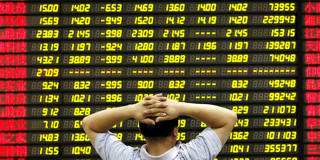It is time to stop viewing crises as exceptional events and admit how frequently shocks actually occur. The task of forecasters and policymakers is not to predict the next catastrophe but to sharpen their focus on resilience – what it takes to stay the course with politically mandated policies while minimizing the inevitable dislocations.
NEW HAVEN – I have been in the forecasting business for more than 50 years. Over that period, I have heard the constant refrain that the world is in the midst of “unprecedented changes.” This popular trope frequently resulted in equally hyperbolic corollaries: breathless claims that we have never faced greater risks or such an uncertain future, that forecasting has never been harder. Repeat it enough, and it starts to become believable.

NEW HAVEN – I have been in the forecasting business for more than 50 years. Over that period, I have heard the constant refrain that the world is in the midst of “unprecedented changes.” This popular trope frequently resulted in equally hyperbolic corollaries: breathless claims that we have never faced greater risks or such an uncertain future, that forecasting has never been harder. Repeat it enough, and it starts to become believable.